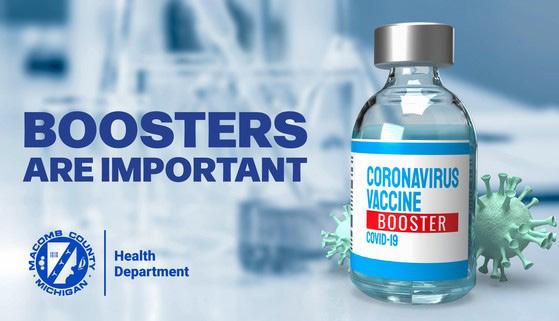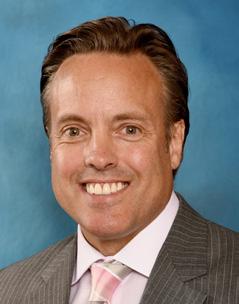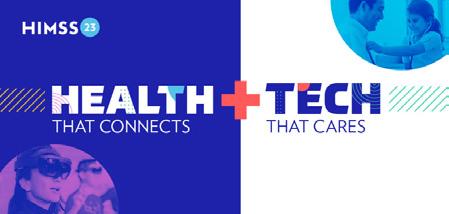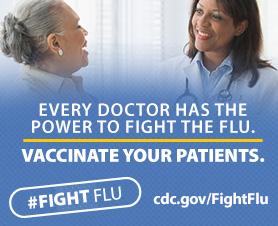
10 minute read
Do We Have "Quiet Quitters" in Our Practice?
By: Jodi Schafer, SPHR, SHRM-SCP | HRM Services | www.WorkWithHRM.com

Advertisement

It seems like now that we have passed the worst of COVID, our staff is burnt out and unmotivated. It is hard to get anyone to go above and beyond anymore, and it seems like so many want to do the least amount of work possible. For example, it is hard for me to find coverage for shifts when staff are taking vacation or are off sick, to find staff to step up and take on new tasks, or to find volunteers to help organize fun events for our team. I’ve heard this term called “quiet quitting” and it makes me wonder if that is our problem. What advice to you have?
The phrase “quiet quitting” is relatively new and refers to employees who are still fulfilling their job duties, but not doing anything beyond the minimal expected for their position. These types of behaviors may include things like not volunteering to do anything extra, staying quiet during meetings instead of offering ideas, and coming into the office and leaving right at opening and closing times. If you are seeing these types of behaviors, then you may have a “quiet quitter” on your team. And you are not alone, some estimate that upwards of 50% of current employees are showing these tendencies.
While this pattern of behavior may be alarming, you can’t apply a solution without more information. Check in with the employees you are concerned about one-on-one to see how they are doing. Let them know that you’ve noticed that they are quieter lately (or another passive behavior you have noticed) and ask if there is anything they need or if there is anything they want to talk about. Questions like this can open the door for deeper sharing and understanding. Are the signs of burn out and lack of motivation due to the job/work environment or are they due to a stressor in the employee’s personal life over which you have no control?
If the concerns the employee shares are work-related, communication and connection are the path forward. For example, does the employee feel appreciated at work? Appreciation is different from recognition in that appreciation is about the individual person and not the results being achieved. Even when an employee makes a mistake, are they still appreciated as a part of the team? Leaders have a critical role in developing the trust and relationships needed to show genuine appreciation with individual employees and teams.
Many employees also don’t feel a strong connection to the bigger focus of the practice and the work. They may feel like a “cog in a machine” and have disengaged as a result. In this case, recommit to communicating your vision and values for the organization and the role that every team member plays in that. Ask employees for their feedback on how things could be improved and encourage your managers/leaders to do the same. Empower staff to handle duties that may be beyond their basic responsibilities and let them know that you believe they can make judgement calls that are in the best interest of the practice and the patients.
Continue to have regular one-on-one meetings with your team. The most successful managers/supervisors check in at least 1530 minutes a week. This ongoing connection promotes relationship building, provides time to see how things are going – at work and at home, and shows the employee that someone at your practice cares about their success. As humans, we are social animals, we look for connections to help us understand our place in the world and find fulfillment. This approach will help you create a positive company culture, reducing the amount of quiet quitting behaviors you are experiencing and improving employee morale and engagement along the way. F
By: Daniel M. Ryan, MD, MSMS Region 2 Director
AFTER 30+ YEAR PARTNERSHIP, MSMS CEO JULIE NOVAK IS ON TO NEW OPPORTUNITIES
Julie Novak’s career at the Michigan State Medical Society (MSMS) has been a rich and full one, spanning countless challenges and successes for Michigan’s physician community over the past nearly 33 years. However, like all things, that partnership came to an end, Julie officially ended her time with MSMS on November 11, 2022.
"It is with gratitude that we wish Julie the best as she leaves MSMS for new opportunities,” said Mark Komorowski, MD, Chair of the MSMS Board of Directors. "Julie has been an important part of our staff and leadership team for more than 30 years, and her work is greatly appreciated by the member physicians of this organization. As we move forward in the transition to new staff leadership of MSMS, those physicians, the work they do, and the patients they serve will remain our top priority."
Julie joined MSMS in 1990 as chief of health care research, charged with analyzing policy issues, data assessments and membership surveys. Since that time, she has served in a variety of positions related to health care delivery, medical economics, and operations of MSMS, having served as the society’s Chief Executive Officer for the past 14 years.

"Leaving an organization where you have spent most of your career is an important milestone, and I am extremely thankful for and appreciative of the colleagues I have considered partners over the years. I will miss their professionalism and service to the membership of MSMS," Novak said.
KALAMAZOO PHYSICIAN TOM GEORGE, MD, NAMED MSMS INTERIM CEO


The Michigan State Medical Society is set to begin a new chapter with the announcement that Tom George, MD, will be taking on the role of Interim CEO of the society starting November 18, 2022.
As a long-time MSMS member, former state legislator, and practicing physician, Dr. George has the kind of unique expertise and experience that will make him an immediate and invaluable asset to the Michigan State Medical Society and its member physicians across the state. Poised to provide leadership and direction from day one of his tenure, Dr. George intends to focus a great deal of his efforts on ensuring the association is meeting the needs of its members.
“I’ve been a practicing physician and member of the Michigan State Medical Society for 37 years now,” said Dr. George. “And over the years, there’s been no question that MSMS has made a significant and positive difference in shaping our state’s health care landscape through its advocacy efforts on behalf of Michigan’s physicians and the patients they serve. I intend to see that this society continues to provide that same kind of value and service to its members. That effort will be rooted in building strong peer-to-peer, doctor-to-doctor relationships with current, prospective, and former MSMS members throughout the state.”
His leadership comes at a fortuitous time for the society. With sweeping changes coming to Lansing’s political landscape, Dr. George’s decade of experience serving as an elected member of Michigan’s legislature will prove invaluable as MSMS works to position itself to best advocate for its members and promote the public health of Michigan’s citizens.
“Changing leadership in Lansing presents new challenges, but also new opportunities for this society to make a real difference in the ongoing efforts to implement policies that will positively impact Michigan physicians and patients,” said Dr. George. “And while the political landscape may be shifting, our fundamental goal of working to promote the health of citizens of Michigan remains unchanged.”
In addition to being a practicing physician at Kalamazoo Anesthesiology P.C., Dr. George also serves as Co-Chairman of the Department of Anesthesiology at the Western Michigan University Homer Stryker School of Medicine. He has previously served as president of the Kalamazoo County Medical Society, the Michigan Society of Anesthesiologists, and the Historical Society of Michigan. While serving as Interim CEO of MSMS, Dr. George will continue practicing on a limited, part-time basis.
CMS EXTENDS THE MIPS EXTREME AND UNCONTROLLABLE CIRCUMSTANCES APPLICATION DEADLINE FOR THE 2022 MIPS PERFORMANCE YEAR UNTIL MARCH 3, 2023
The Centers for Medicare and Medicaid Services (CMS), has extended the deadline to file a 2022 MIPS Extreme and Uncontrollable Circumstances (EUC) hardship extension until March 3, 2023. The original deadline was Jan 3, 2023. If physicians feel they have been impacted by the COVID-19 pandemic in 2022 they may file a MIPS hardship exemption with CMS to avoid a 2024 MIPS penalty.
MSMS is glad to see CMS recognize the toll the pandemic continues to have on physician practices by providing additional time to file a hardship exemption from the 2022 MIPS program. MSMS encourages practices to take advantage of this administrative relief.
For more information on how to file an EUC, please see the CMS announcement, which is included below:
For the 2022 performance year, we continue to use our Merit-based Incentive Payment System (MIPS) Extreme and Uncontrollable Circumstances (EUC) application to allow clinicians, groups, virtual groups, and Alternate Payment Model (APM) Entities to request reweighting of MIPS performance categories due to the COVID-19 public health emergency (PHE). We’ve extended the MIPS EUC application deadline for only individuals, groups, virtual groups, and APM Entities citing COVID-19 as the triggering event through 8 pm ET on Friday, March 3, 2023. Please note that applications received between January 3, 2023 and March 3, 2023 won’t override submitted data for individuals, groups, and virtual groups.
APM Entities participating in MIPS APMs can submit a MIPS EUC Exception application with some differences from our existing policy for individuals, groups, and virtual groups:
• APM Entities are required to request reweighting for all performance categories.
• At least 75% of the MIPS eligible clinicians in the APM Entity will need to qualify for reweighting in the Promoting Interoperability performance category.
• Data submission for an APM Entity won't override performance category reweighting from an approved application.
HIMSS GLOBAL HEALTH CONFERENCE & EXHIBITION

April 17 – 21, 2023 in Chicago, IL
The HIMSS Global Health Conference & Exhibition is the most influential health information technology event of the year, where 40,000+ professionals throughout the global health ecosystem meet to build relationships during lively networking events, learn from experts in hot topic education sessions, and discover innovative health tech products to solve their greatest challenges.
The Michigan State Medical Society is excited to be a Partner of HIMSS23! As such, our members receive the HIMSS member rate to attend. To register, visit HIMSS23 General Registration and sign in. Once on the General Registration page, select the Chapter or Collaborator tab on the left-hand side. Select your preferred HIMSS23 Pass and enter MSMS as the Referring Collaborator Organization to receive the HIMSS member rate on registration. Organization must be an approved HIMSS23 Partner to receive the member rate.
AMA HOD INTERIM MEETING WRAP-UP
The American Medical Association (AMA) House of Delegates (HOD) addressed a number of timely issues during its November Interim Meeting in Honolulu, Hawaii. The Michigan Delegation joined colleagues from 171 state societies, national specialty societies, sections, and services to debate, influence, and set AMA policy. Nearly 200 items of business were addressed.
Led by Mark C. Komorowski, MD, Chair and Paul D. Bozyk, MD, Vice Chair, members of the Michigan Delegation actively participated in policy making through testimony, council and committee membership, and networking. Michigan submitted five resolutions which are listed below.
Notably, Jann Caison-Sorey, MD, served on Reference Committee C (Medical Education), while also serving as Vice Chair of the AMA’s Committee on Conduct at AMA Meetings and Events. Betty S. Chu, MD, MBA, and Pino D. Colone, MD, continue to serve on the AMA Council on Medical Service and AMA Council on Constitution and Bylaws, respectively.
Visit the AMA's website for highlights from the AMA Special Meeting.
Michigan Resolutions at AMA Interim 2022:
310 (I-22) Enforce AMA Principles on Continuing Board Certification
Adopted as amended:
Policy H-275.924 was reaffirmed in lieu of the first Resolve of Resolution 310. The second Resolve of Resolution 310 was amended to read as follows: RESOLVED, That our AMA continue to publicly report its work on enforcing AMA Principles on Continuing Board Certification. (Directive to Take Action)
314 (I-22) Balancing Supply and Demand for Physicians by 2030
The following current policy was reaffirmed in lieu of Resolution 314:
• US Physician Shortage H-200.954
• Revisions to AMA Policy on the Physician Workforce H-200.955
• Primary Care Physicians in Underserved Areas H-200.972
• Educational Strategies for Meeting Rural Health Physician Shortage H-465.988
• Increasing Graduate Medical Education Positions as a Component to any Federal Health Care Reform Policy D-305.958
315 (I-22) Bedside Nursing and Health Care Staff
The following current policy was reaffirmed in lieu of Resolution 315:
• The Growing Nursing Shortage in the United States D-360.998
926 (I-22) Limit the Pornography Viewing by Minors Over the Internet Adopted.
RESOLVED, That our AMA amend existing policy H-60.934, “Internet Pornography Protecting Children and Youth Who Use the Internet and Social Media,” by addition to read as follows:
Our AMA:
(1) Recognizes the positive role of the Internet in providing health information to children and youth.
(2) Recognizes the negative role of the Internet in connecting children and youth to predators and exposing them to pornography.
(3) Supports federal legislation that restricts Internet access to pornographic materials in designated public institutions where children and youth may use the Internet.
(4) Encourages physicians to continue efforts to raise parent/ guardian awareness about the importance of educating their children about safe Internet and social media use.
(5) Supports school-based media literacy programs that teach effective thinking, learning, and safety skills related to Internet and social media use.
6) Actively support legislation that would strengthen childcentric content protection by internet service providers and/ or search engines in order to limit the access of pornography to minors on the internet and mobile applications. (Modify Existing Policy)
927
(I-22) Off-Label Policy
The following current policy was reaffirmed in lieu of Resolution 927:
• Patient Access to Treatments Prescribed by Their Physicians H-120.988 F


Henry Ford Macomb
Obstetrics & Gynecology
State Of Msms Address
Tom George, MD, MSMS's Interim CEO, delivered a State of MSMS Address to the membership on Wednesday, January 11, 2023 via Zoom.
As a long-time MSMS member, former state legislator, and practicing physician, Doctor George is providing leadership to ensure the Society is meeting the needs of its members while also building organizational sustainability for future success.
Doctor George shared his priorities for legislative and regulatory advocacy within the new state political environment, membership outreach and growth, and addressed important budget challenges.
Click here to view the recording or visit MSMS website’s list of On-Demand Webinars.



